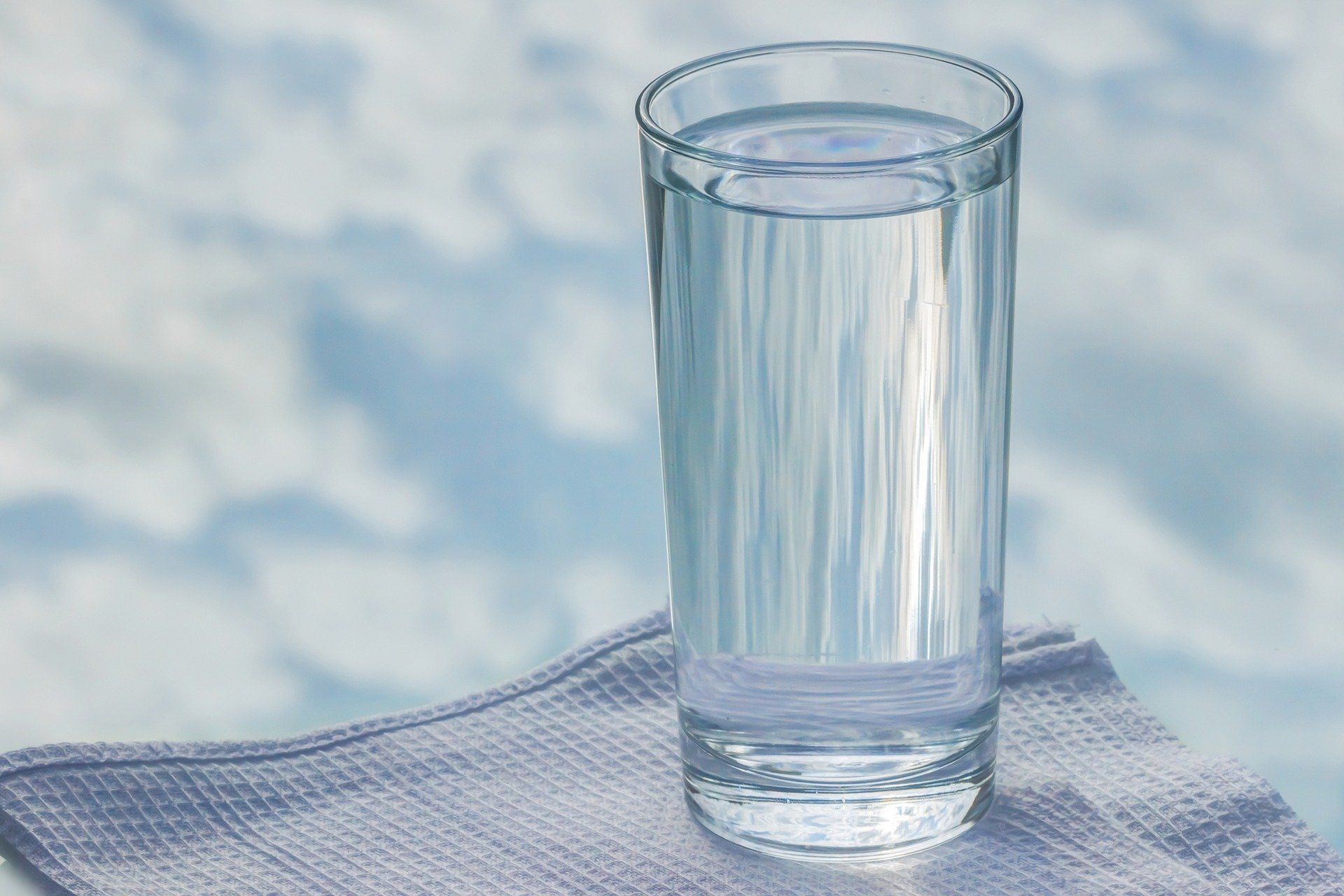Back to Basics: Water
photo credit: Image by Michael Tavrionov from Pixabay
There is no doubt about it, water is essential for human life and health. But let’s dig a little deeper since there's more than meets the eye.
How do our bodies use water?
Our bodies are made up of about 60% water and every cell, tissue, and organ needs water to work properly. For example, water:
- Regulates body temperature
- Moistens tissues in the eyes, nose, and mouth
- Protects organs and tissues
- Carries nutrients and oxygen to cells
- Lubricates and cushions joints
- Protects the spinal cord and other sensitive tissues
- Lessens the burden on the kidneys and liver by flushing out waste products through urination, perspiration, and bowel movements
- Helps dissolve minerals and nutrients to make them accessible to the body
How much water should I drink every day?
We have all seen various recommendations for how much water we need to drink every day, and it's helpful to keep the guidelines in mind, but we should also be aware that the amount of water each of us needs is dependent on several factors:
- Our age and gender -- Older adults may benefit from drinking some water when not thirsty as studies have shown that they don't always sufficiently replenish their body's need for water after fluid deprivation. Men generally need more water than women due to their size / muscle mass.
- Our environment -- Hot or humid weather can make us sweat and requires additional fluid intake. Dehydration can also occur at high altitudes.
- Physical activity -- If our workout makes us sweat, we should drink water before, during and after exercising to cover the fluid loss. Exercising intensely for over an hour may require us to replace electrolytes (minerals in our blood) lost through sweat by drinking a sports drink, eating an energy bar, or by having certain healthy, whole foods.
- Our general health -- If we're running a fever or have diarrhea or vomiting, our bodies will need more water than usual. Other conditions or situations that may require increased fluid intake include bladder infections, urinary tract stones, and taking diuretic medications. We should follow our physician's recommendations.
- If we're pregnant or breast-feeding -- Women in both situations require additional fluids to stay hydrated. Again, we should follow our physician's recommendations.
Guidance on how hydrated we are:

Information and image credit to the Australian government: https://www.healthdirect.gov.au/urine-colour-chart
- spinach, celery, cabbage, strawberries are 90% to 99% water
- ice cream, legumes, chicken breast are 60% to 69% water
- bread, cheddar cheese are 30% to 39% water
- peanut butter, crackers are 1% to 9% water
- feeling dizzy or lightheaded
- feeling tired
- feeling thirsty
- having a headache
- dry mouth, lips, eyes
- urinating small amounts of liquid, urinating fewer than 4 times a day
- disruptions in mood, cognitive functioning
- constipation, small / hard stools
- nausea, vomiting
- headache
- confusion
- loss of energy, drowsiness, fatigue
- restlessness, irritability
- muscle weakness, spasms, cramps
- seizures
- coma
- Listen to your body and watch for signs:
- Drink water if you're thirsty.
- Ensure that you urinate at least 4 times per day.
- Pay attention to the color of your urine. (See the last two links in the References and Resources section below.)
- Give your body a chance to adapt:
- Opt for a gradual increase in physical activity rather than increasing physical effort too aggressively or too quickly.
- Acclimitize yourself gradually to new environments, especially hot / humid ones, before exercising strenuously in them.
- Drink water as part of a healthy lifestyle:
- Ensure you replenish electrolytes by eating whole, unprocessed foods where possible. (See the article in Runners World in the References and Resources section below.)
- Add lemon, lime, strawberries, other fruit, or herbs to water if you prefer that to plain water. Choose water instead of sugar-sweetened beverages.
- Store some bottles of water in the freezer so that you can grab them on the go to enjoy cold. Keep in mind that you might want to remove the lid and a bit of water before leaving water bottles in the freezer because water expands as it freezes. Simply replace the lid after the water has frozen.
- Have plenty of whole fruits and vegetables every day.
- Mayo Clinic on what the body does with water: https://www.mayoclinichealthsystem.org/hometown-health/speaking-of-health/water-essential-to-your-body
- National Center for Biotechnology Information (NCBI) of the U.S. National Institutes of Health (NIH) on water intake of infants vs adults and the contribution of drinking water to mineral nutrition: https://www.ncbi.nlm.nih.gov/books/NBK216589/
- Runners World on how to replace electrolytes with whole foods: https://www.runnersworld.com/nutrition-weight-loss/a20795183/the-best-foods-to-replenish-electrolytes/
- Mayo Clinic on types of diuretics: https://www.mayoclinic.org/diseases-conditions/high-blood-pressure/in-depth/diuretics/art-20048129
- Stanford Medicine on electrolyte supplements: https://med.stanford.edu/news/all-news/2020/02/electrolyte-supplements-dont-prevent-illness-in-athletes.html
- BBC on drinking water for better skin: https://www.bbc.com/future/article/20120903-is-drinking-water-good-for-skin
- CDC on water and nutrition: https://www.cdc.gov/healthywater/drinking/nutrition/index.html
- NCBI re a study on Water, Hydration, and Health: https://www.ncbi.nlm.nih.gov/pmc/articles/PMC2908954/
- National Health Service (NHS) of the UK, on dehydration: https://www.nhs.uk/conditions/dehydration/
- British Journal of Nutrition on a study about hydration and mood and cognition: https://www.researchgate.net/publication/259988117_Effects_of_hydration_status_on_cognitive_performance_and_mood
- Mayo Clinic on how much water to drink: https://www.mayoclinic.org/healthy-lifestyle/nutrition-and-healthy-eating/in-depth/water/art-20044256
- Mayo Clinic on dehydration: https://www.mayoclinic.org/diseases-conditions/dehydration/diagnosis-treatment/drc-20354092
- Mayo Clinic on hyponatremia: https://www.mayoclinic.org/diseases-conditions/hyponatremia/symptoms-causes/syc-20373711
- University of California San Diego Health on the color of urine: https://health.ucsd.edu/news/features/pages/2014-04-21-colors-that-suggest-urine-trouble.aspx
- Australian Department of Health, urine colour chart: https://www.healthdirect.gov.au/urine-colour-chart





